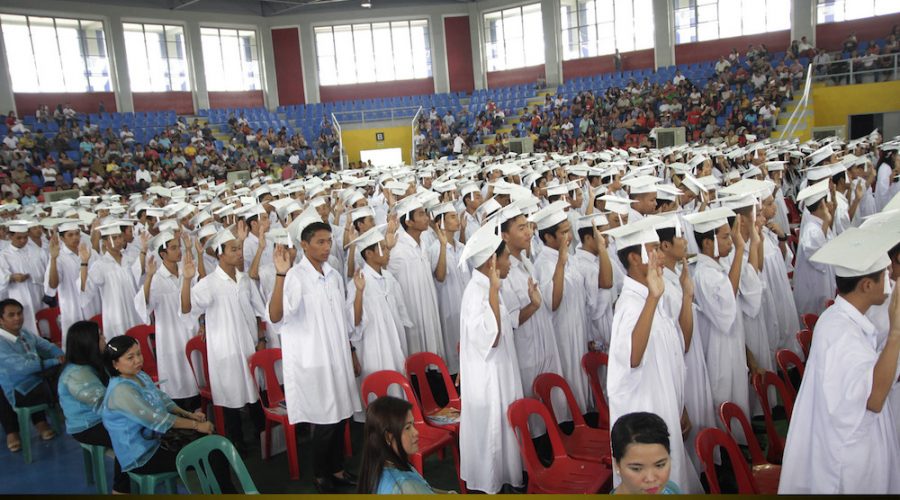The best gift to Filipino graduates
Every March, as I attend graduation ceremonies, I get a rush of inspiration seeing so many young Filipinos reach a major milestone and life achievement – completing their studies.
We can see both pride and relief in their eyes. They exchange hugs and high fives, happy to be free from the shackles of their terror teachers.
Parents, too, beam with delight as they applaud the end of tuition fees and other school-related expenses.
This year, about 700,000 fresh graduates will be scouring newspaper advertisements, join job fairs, sign up on online job websites, visit companies and inquire about possible employment vacancies.
A number of these graduates will find jobs in the Philippines; a number will find jobs abroad. Some will work in a formal company; others will be working more informally. And unfortunately, some will join the ranks of the unemployed.
This is the unfortunate milieu our 2015 graduates are entering. We need to build a bridge between education, and employment and entrepreneurship, and we need to fill in the gap at the soonest possible time.
In the case of New Zealand’s Ministry of Education, they created an agency called Careers New Zealand (NZ) to bridge this gap by working with both the private sector and educational institutions.
They determine the qualifications demanded by the workforce then ensure that the right skills and expertise is developed in schools. Therefore, graduates match the job opportunities in the market.
Inspired by New Zealand, our office is currently working with Generoso Villanueva National High School in Bacolod to match the needs of the job opportunities in their area, which include call centers and HRM opportunities, to the skills that they are teaching to their students.
Offering alternatives
To scale this up, Department of Education (DepEd) Secretary Armin Luistro committed to establish placement offices in public high schools in the K to 12 system, upon our suggestion during the budget deliberations of DepEd in the Senate.
But with the lack of jobs to fill in the first place, we need to offer more alternatives to our young graduates, and entrepreneurship should be a viable option for them.
Micro, small, and medium enterprises (MSMEs) compose 99.6% of total establishments in the Philippines and contribute 61.2% of the country’s total employment. Already, MSMEs play a vital role in providing livelihood and prosperity to millions of Filipinos.
Entrepreneurship can also serve as a means for our unemployed youth sector to pave their own way out of poverty and into financial independence. Not to mention, they can create more job opportunities for their peers.
The Department of Trade and Industry is now establishing 100 Negosyo Centers all over the country this year with our recently enacted Go Negosyo Act, which will consolidate all efforts in assisting starting and current small business owners.
Potential clients can access help in business registration, financing, product development, financial management and market linkage from these Negosyo Centers.
We also authored and sponsored the Youth Entrepreneurship Bill, which aims to expose our Filipino youth to entrepreneurship at a young age and give them a good foundation for business creation in the future.
If enacted into law, course programs in entrepreneurship will be developed for primary, secondary and post-secondary schools to give them basic knowledge on financial literacy and how to start and run their own businesses.
Moreover, the bill aims to create a fund and support structures to aid starting entrepreneurs in their product development, access to capital, training and other services, to help them establish their own enterprises.
The Youth Entrepreneurship Bill was passed on third reading in the Senate and was passed on second reading in the House of Congress recently.
With our improving economy, there is no better time than now to empower our youth with the values and skills of innovative entrepreneurship.
I am hopeful that the Philippines can offer our wide-eyed, idealistic, and well equipped graduates a wealth of opportunities – from job openings in successful institutions to the possibility of putting up a thriving business around their innovative, world-class ideas.
Firs published on Rappler.com

Recent Comments